Tuscany Again: a journey of rediscovery
Travel group Tuscany Again specialises in bespoke high-end experiences with the best guides, chefs and artisans the region has to offer
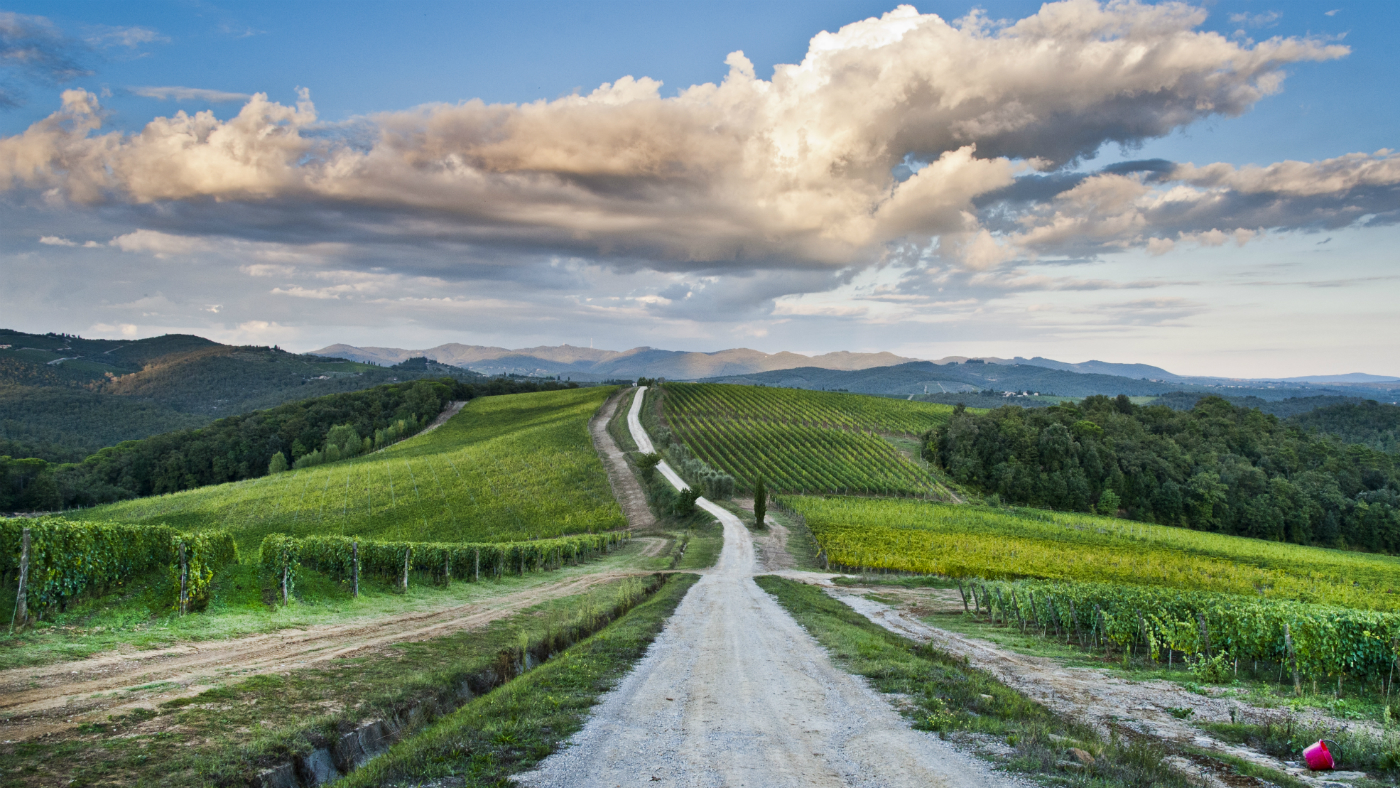
A free daily email with the biggest news stories of the day – and the best features from TheWeek.com
You are now subscribed
Your newsletter sign-up was successful
Many of the landscapes of the great Italian Renaissance painters share a common look and feel. Whether they depict Judea, Olympus, the heavens or the Last Judgement, the most famous works of the 14th to 17th centuries often feature gently rolling hills dotted with Cypresses, burgeoning grape vines and dusty olive groves, all bathed in soft glowing light.
The reason for this, of course, is that many of the Italian old masters spent their time in and around Tuscany; a fact that becomes instantly apparent when you first set foot on Tuscan soil, and immediately find yourself thrown into the background of those familiar works. It is a stunning, unforgettable landscape, and also a slightly disconcerting experience to suddenly find yourself in the middle of a Da Vinci or Michelangelo.
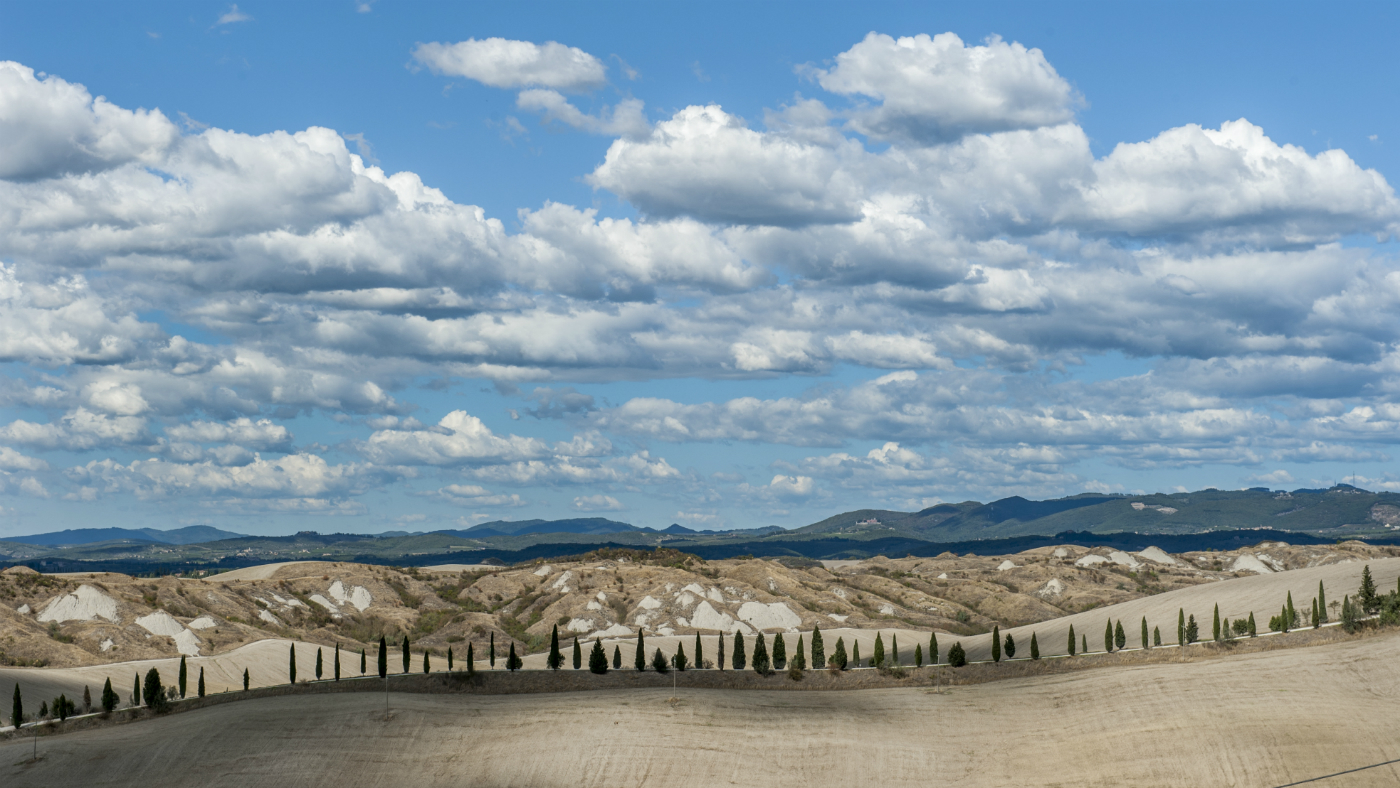
But after a few visits to Tuscany, travellers may begin to feel as though they have the region’s number. So if you have scaled the Duomo in Florence, selected a favourite Brunello in Montalcino, and gorged yourself on pizza in Pisa and orzo in Arezzo, then you might be in the mood for a different Tuscan experience. Enter Tuscany Again.
The Week
Escape your echo chamber. Get the facts behind the news, plus analysis from multiple perspectives.

Sign up for The Week's Free Newsletters
From our morning news briefing to a weekly Good News Newsletter, get the best of The Week delivered directly to your inbox.
From our morning news briefing to a weekly Good News Newsletter, get the best of The Week delivered directly to your inbox.
The brainchild of Leonardo Ferragamo, the son of luxury goods designer Salvatore Ferragamo, Tuscany Again is a tourism company that invites guests to, well, see Tuscany all over again.
The company gives access to exclusive experiences, tours and trips that aim to show off the best of the region, with classes with local craftsmen, as well as adventures with experts in history, art, nature and gastronomy.
The Week Portfolio took a whirlwind trip through the region to sample a range of the experiences Tuscany Again offers.
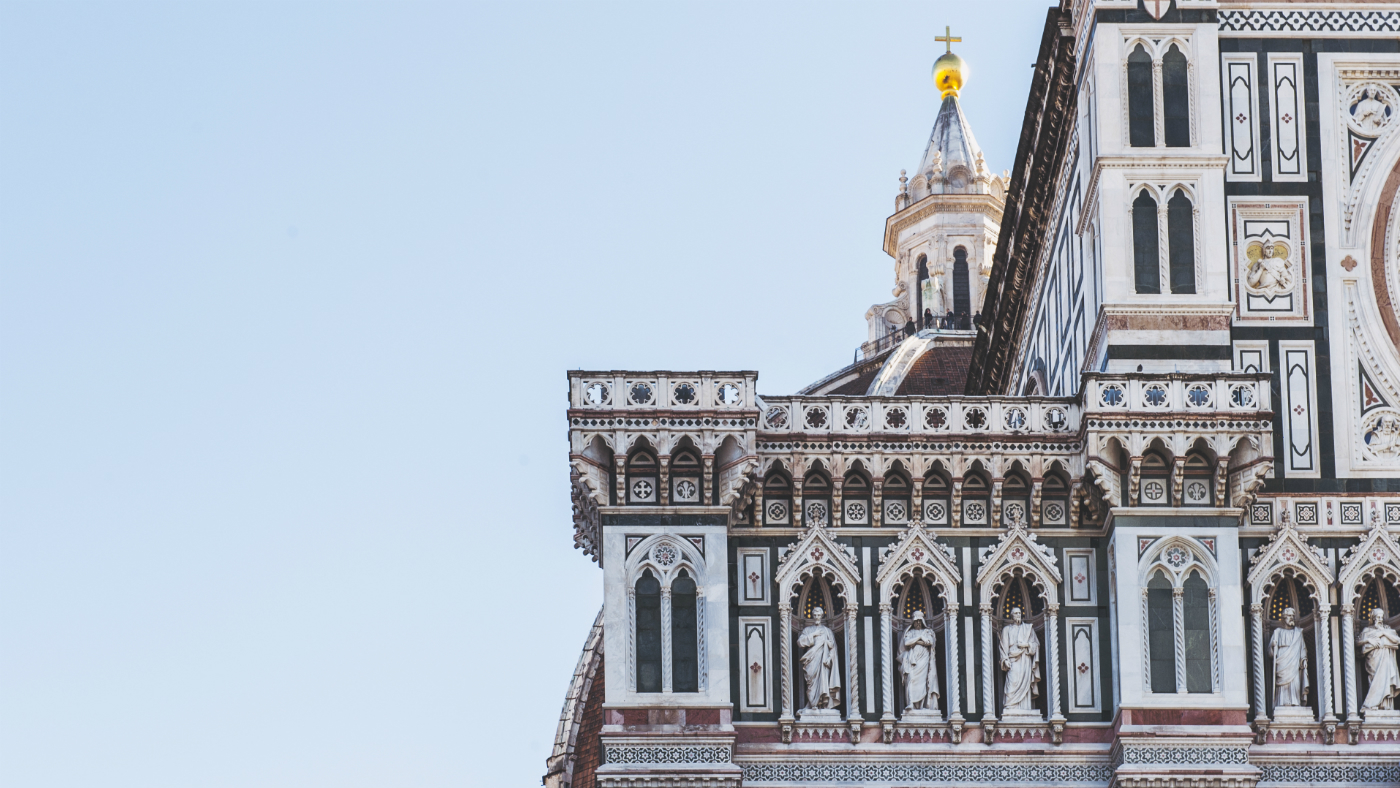
Foraging and cooking
A free daily email with the biggest news stories of the day – and the best features from TheWeek.com
The first stop on our itinerary takes us out into those familiar rolling hills, to join Roberto Vetromile, a botanical researcher and expert in wild plants, on a walk in search of the overlooked wild plants, berries and herbs that feature in traditional cooking in the region, but which risk being overlooked, or even forgotten about, in the age of mass agriculture.
Phytoalimurgia, the scientific approach to gathering and eating wild plants, was developed in Italy by the naturalist and physician Giovanni Tozzetti around 1767. Vetromile, our affable guide, follows in Tozzetti’s footsteps, leading us on a journey up and down a single hill, which - on first inspection - looks almost entirely barren of comestibles. But armed with just a Swiss army knife, and his own knowledge, Vetromile cuts off flower heads, strips spiky plants of their spines, and exposes the delicious fleshy interiors of otherwise unpromising-looking plants.
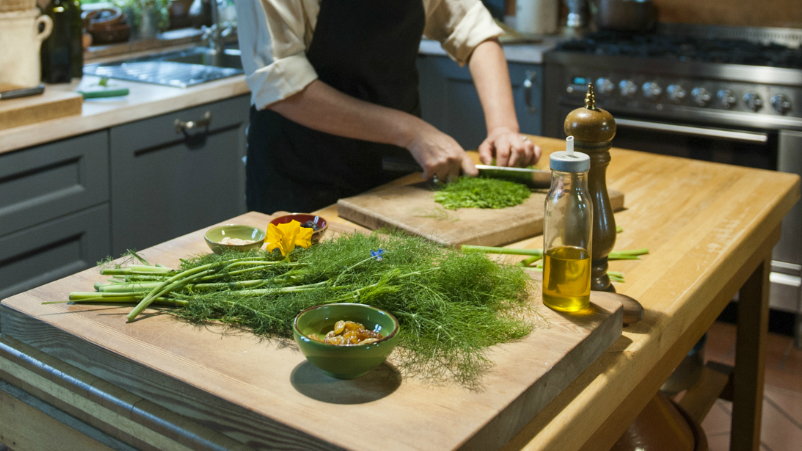
Flavours of various hues and complexions pass our lips - leaves like peppery rocket, stems that offer a bean-like crunch, and bright wildflowers that taste indescribably their own - all are gathered up and brought back with us to the kitchen of Roseanna Passione, our indefatigably smiling and ever-patient chef, here to take us through the fine art of pasta making.
Like most Italian food, pasta is deceptively complex. The union of nothing more than egg and flour, there are nevertheless a thousand ways to get it wrong. Passione takes us through the ins and outs of the process, to build a perfect dough, which we then run through her pasta roller, turning it into a long thin strip, which we then use as the shroud for our wild herbaceous ravioli, filled with ingredients from our walk.
As we are focussed on the task of stuffing and cutting pasta, Passione whips up sauces to accompany our meal. The dishes are then presented to us, decorated with edible flowers from our walk, and accompanied by her favourite Chianti - the best possible way to spend an afternoon in the Tuscan hills.
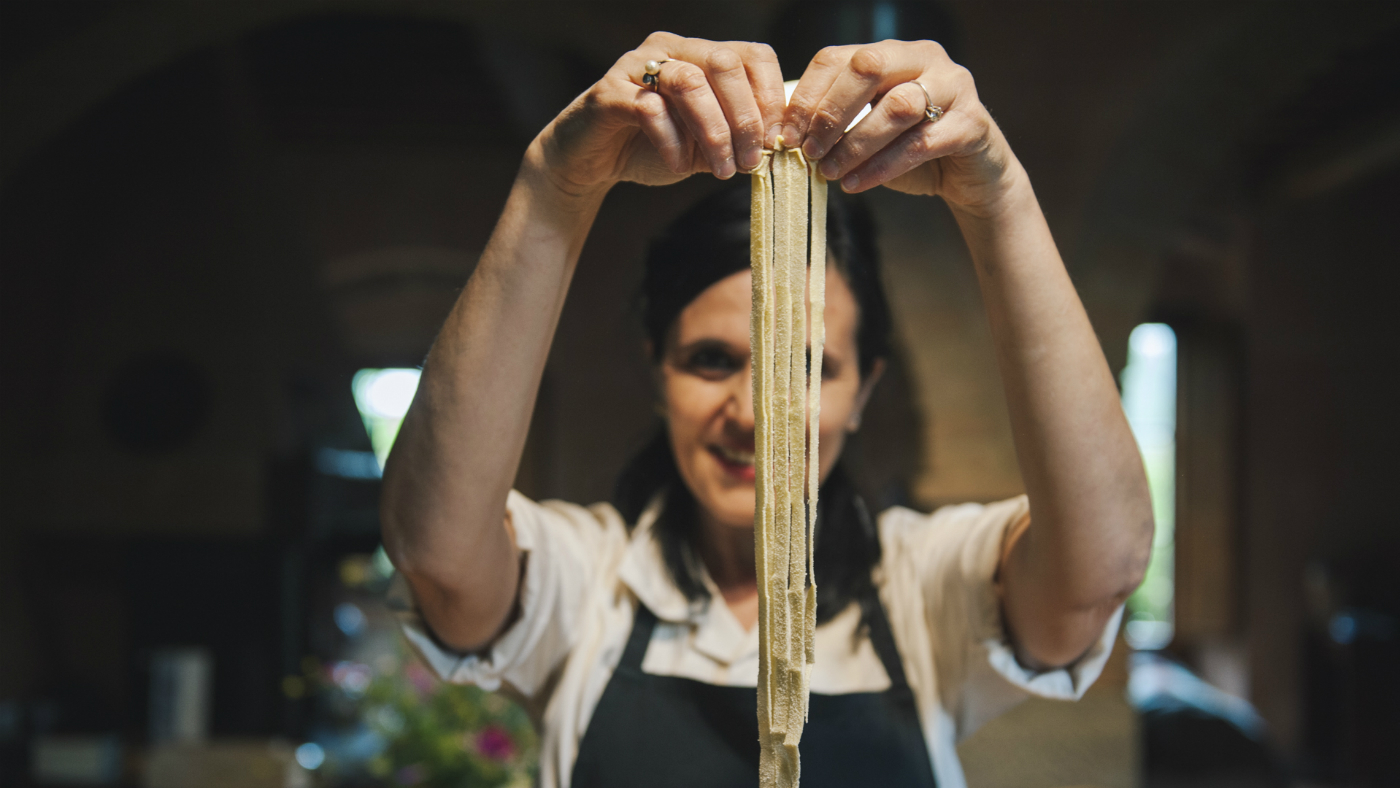
Coffee making
Italians are deeply proud of their country’s reputation as the coffee capital of the world, and the caffeinated beverage has a long history on the peninsula. Venice was one of the first European cities to import coffee beans in the 16th century, according to Quartz, and around the turn of the 19th century, "Italy emerged as the global leader in coffee thanks to Milanese inventor Luigi Bezzera (who) came up with the idea of forcing pressurised water through a handful of coffee powder to produce a short, concentrated drink: the espresso."
And while the all-conquering US coffee monolith Starbucks finally got a foothold in the country for the first time last year, most Italians remain suspicious of anything but their own coffee, and with good reason.
Our second stop is a trip to the Mokaflor coffee roasting factory, located on the south side of the Arno river out to the east of the town centre, in an inauspicious industrial estate.
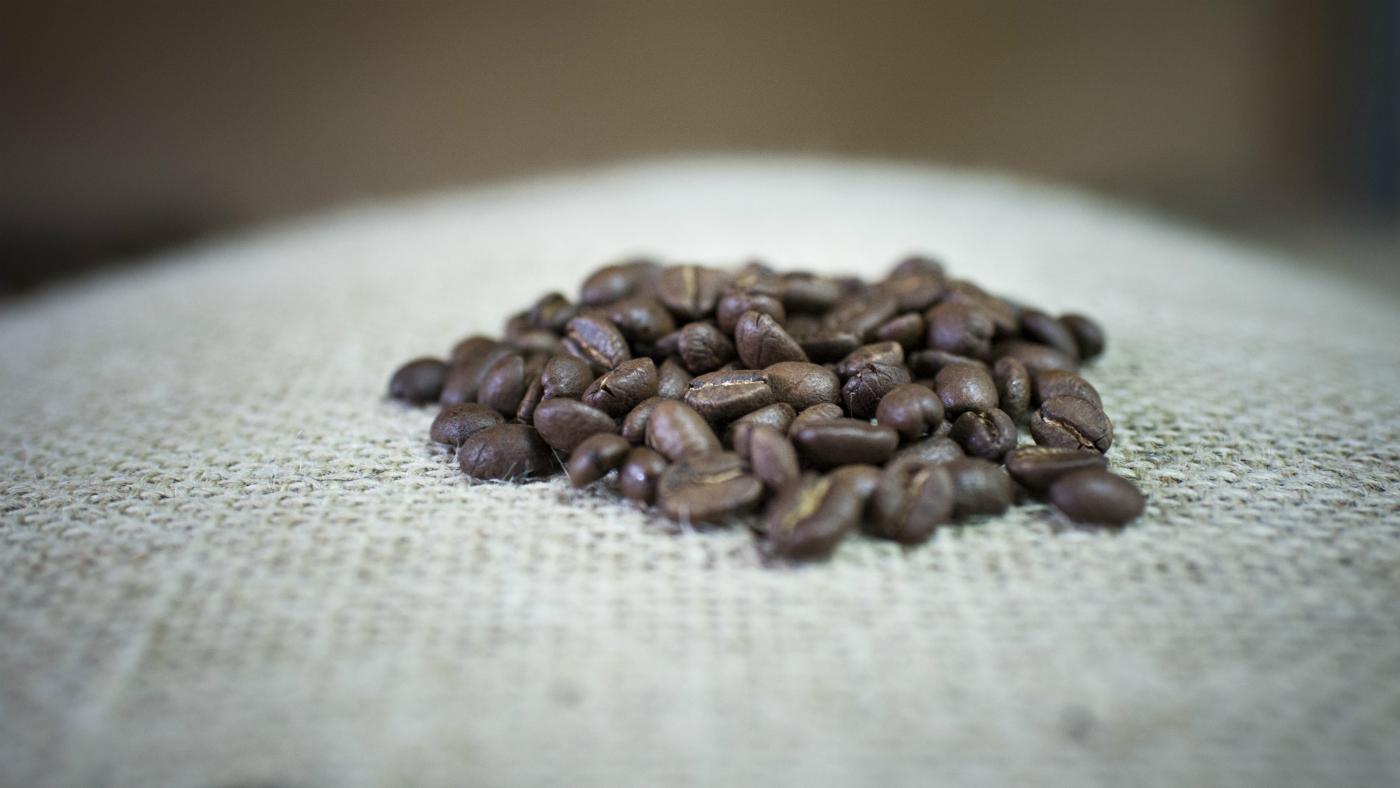
Inside, we are met by the team and taken on a journey through the process of sourcing, roasting and packaging beans, before we sit down for a master class to learn about how to combine the best flavours of Arabica and Robusta to get the perfect espresso.
The session also touches on the vagaries of Italian cafe culture, the etiquette and the potential pitfalls and unspoken rules you may encounter as a foreigner. Most visitors know that ordering a cappuccino after midday is a no-no, but it came as news to this reviewer that it is incorrect to ever ask for an "espresso". In Italy, my genial hosts inform me, it’s just coffee (or caffè).
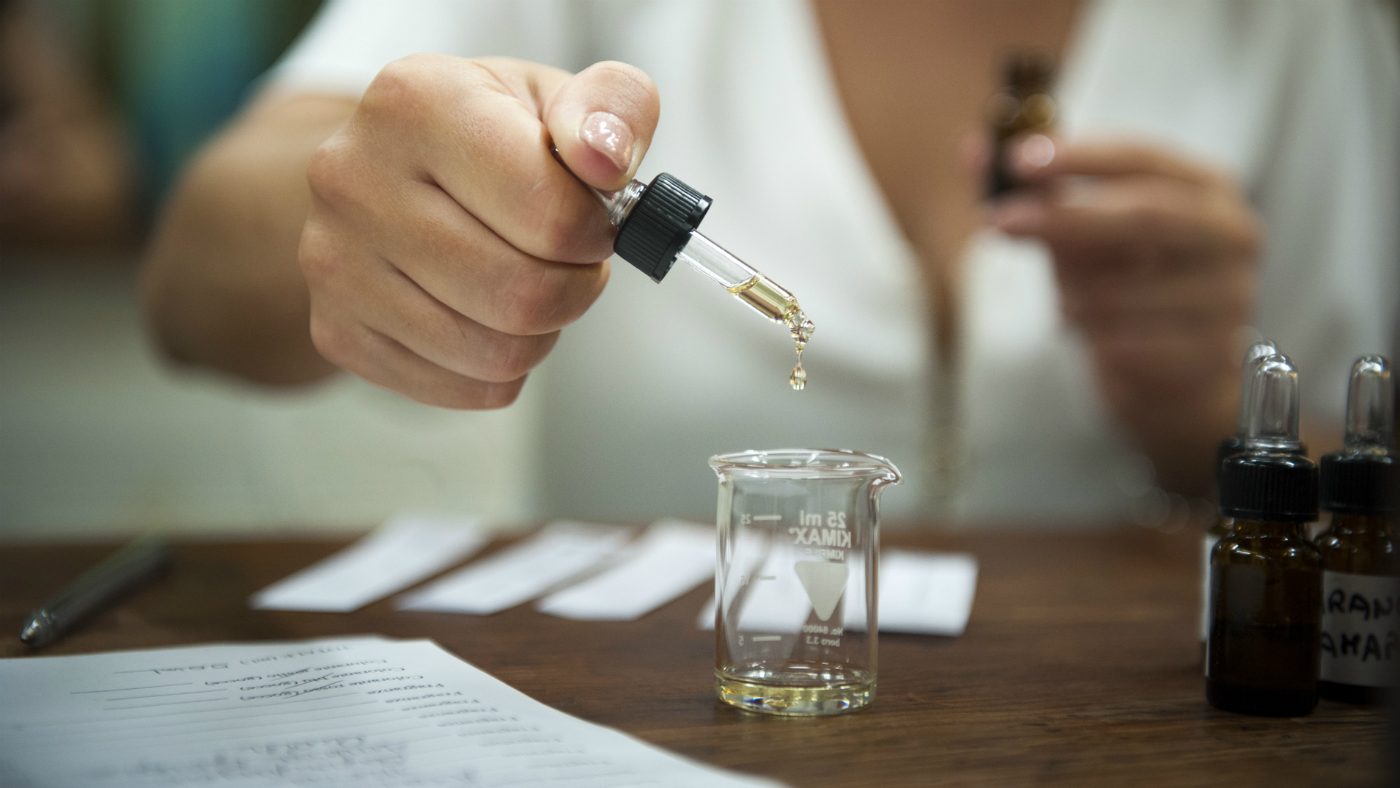
Getting a good cup depends on selecting the right mixture of beans, a selection of which are presented in front of our intimate workshop. The two key types of beans are Robusta and Arabica. Robusta tastes bitter and earthy and generally has about twice as much caffeine as arabica. Arabica, meanwhile, tends to offer a greater variety of flavours, including hints of fruit, flowers, chocolate and nuts. But the perfect coffee, at least according to Italians, features a combination of the two - say 75-80% arabica and 20-25% robusta, bringing flavour and a hint of bitterness, as well as just the right dose of methylxanthine (the mild stimulant at the heart of the beverage).
We follow the rules and create our own mixture, which in hindsight might have been heavier on the robusta than we intended, then make our own labels - we christen the mix "Covfefe" in a nod to Donald Trump's late night Twitter neologism/brain fart, and are on our way with two bags of our very own coffee mix.
Perfume appreciation
The next day, our itinerary brings us to the ornate double doors of Lorenzo Villoresi, a perfumer who began making scents in the 1980s after travelling across the Middle East and taking inspiration from across the region, with a particular fascination with Cairo, where he started collecting spices and essences.
We are given a tour of the forthcoming 'academy', which is currently under construction but will soon become a 1,000 sq m facility, split across three floors with a 200 sq m internal garden.
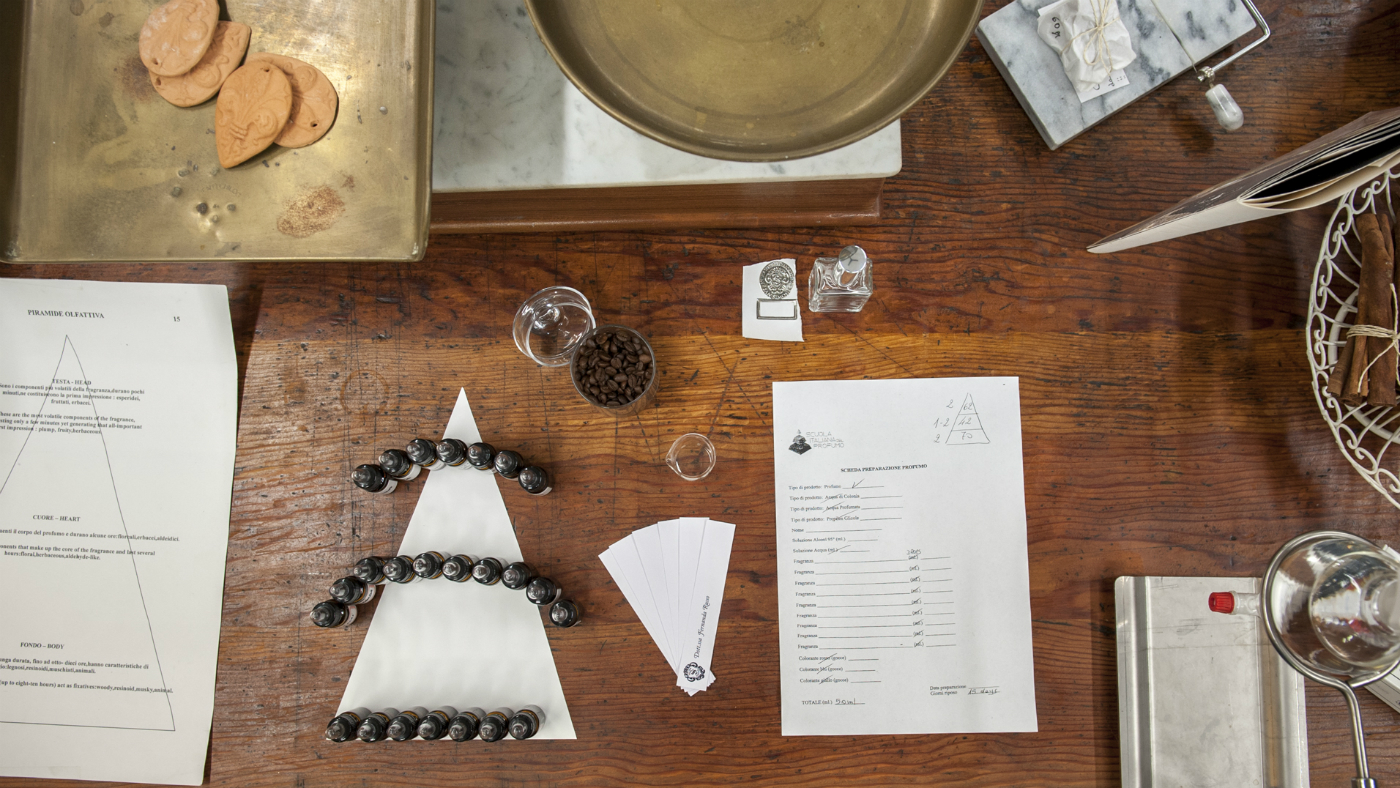
On the ground floor, visitors will being their "journey through the senses", finding out the basics of perfumery. On the upper floor, seminars and courses will be offered featuring Villoresi's library of 2,000 essences and aromatics.
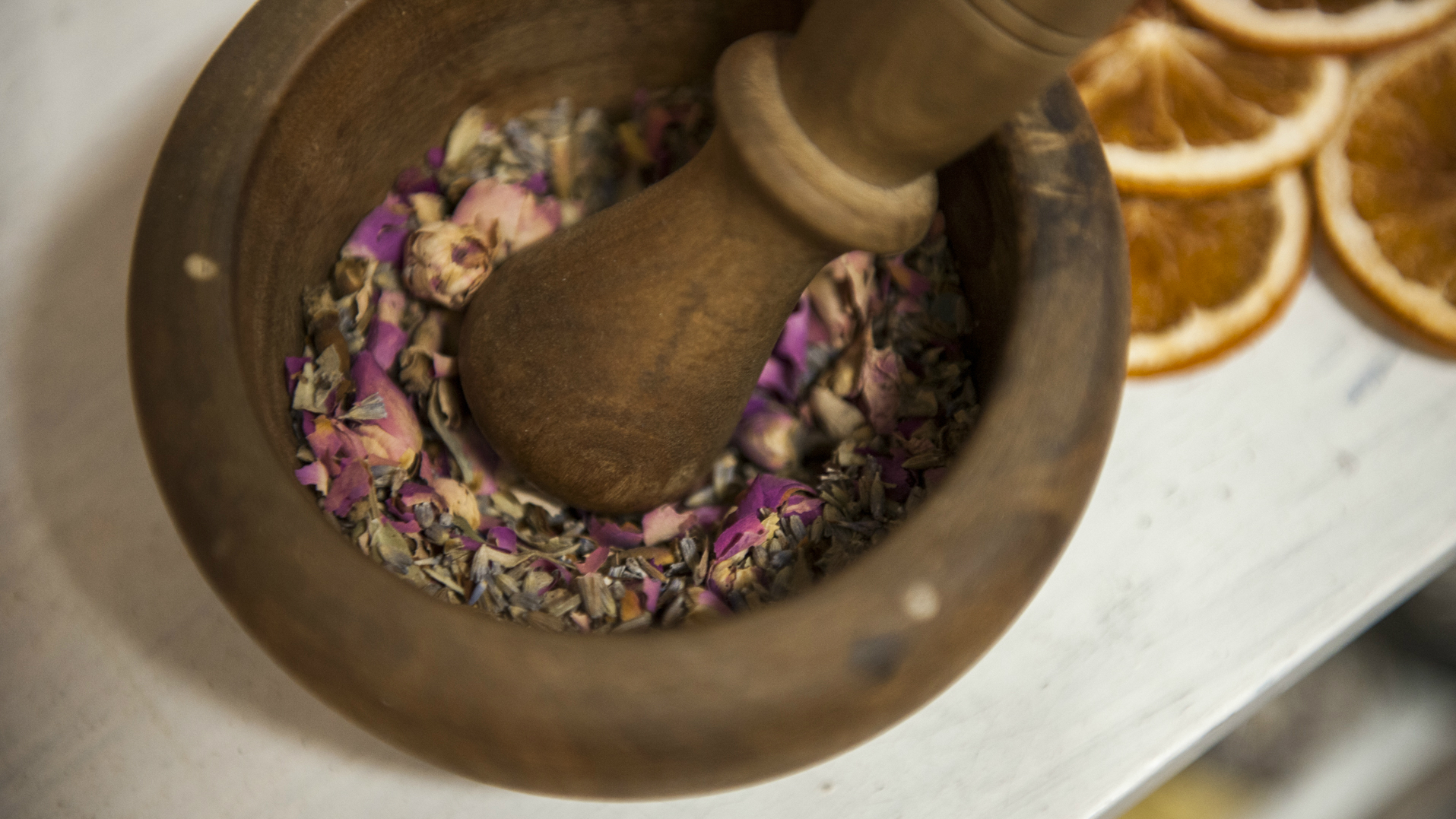
We content ourselves with a tour of the shop downstairs with Villoresi's wife Ludovica, who takes us through her husbands creations, explaining to us the ideas and inspiration behind each, and ultimately giving us samples of our favourites to take away with us.
A longer olfactory tour is also available through Tuscany Again, which takes through Florence’s ancient, winding streets following the trail of Florence’s fragrance manufacturers, and ultimately to deploy their newfound knowledge with a private workshop, blending and creating their own unique fragrance, choosing between a personal perfume or a scent for the home.
Walking tour of Florence's gardens
An unexpected highlight of our long weekend with Tuscany Again was the walking tour we took, visiting the best and most interesting green spaces in Florence. The tour began in the very private Giardino Torrigiano, which is hidden behind the entirely unprepossessing facades of Via de' Serragli.
Once you enter the complex, Europe’s largest privately owned green space within a historic centre, opens up before you - a massive sprawling oasis of English-style lawns, sculptures, grottos, a verdant greenhouse, and extensive herb and vegetables gardens.
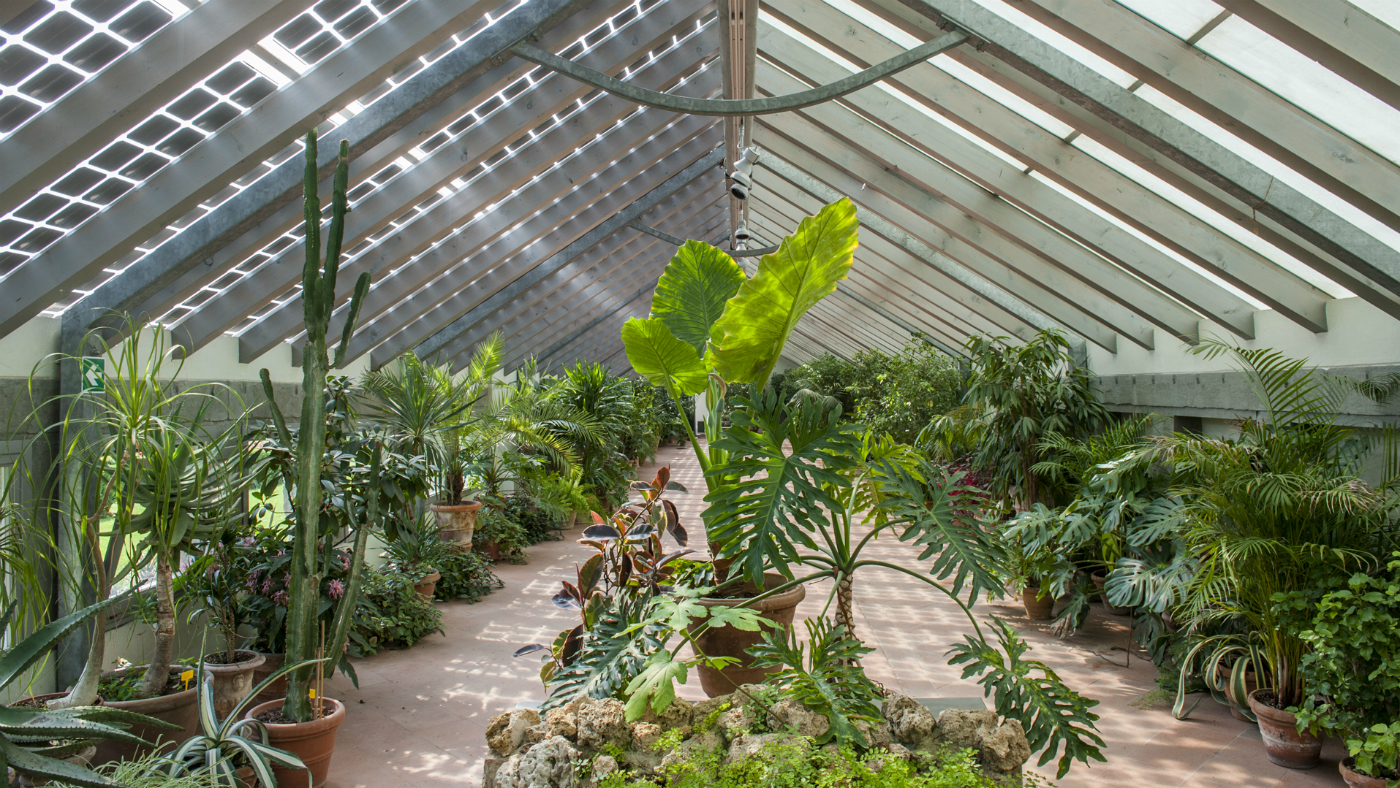
The tour is conducted by none other than Marquis Vieri Torrigiani Malaspina, a member of the illustrious Torrigiani Malaspina and Torrigiani di Santa Cristina families, who leads sporadic tours of very small groups around this storied green space.
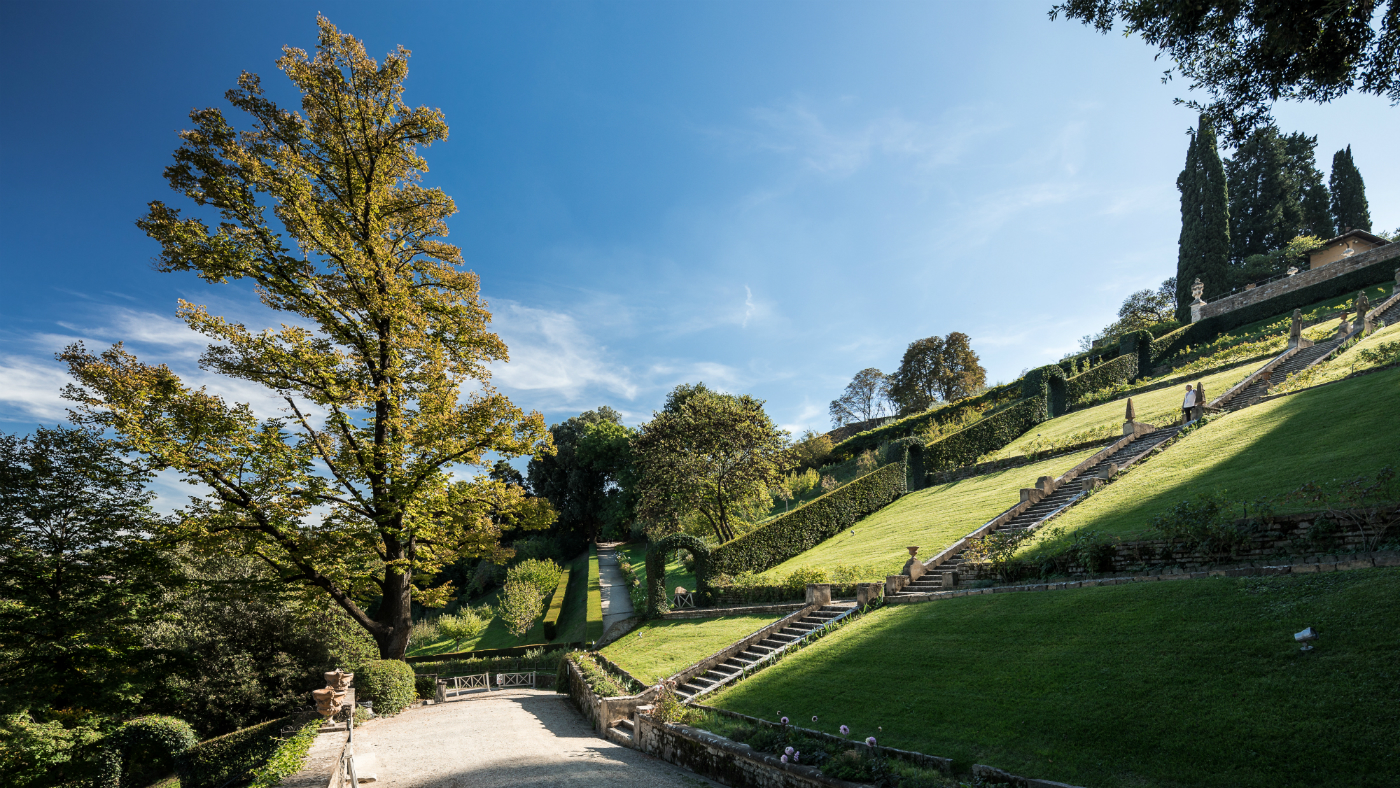
Next we are on to the Boboli Gardens, all hills, hedgerows and history. The gardens border the Pitti Palace, and today continue to reflect the vision of the Medici family, who established the basic layout of the space, founding the Italian garden style that would become a model for courts across Europe.
Often likened to an outdoor museum, the park is filled with statuary, grottos, and fountains, including the impressive Fountain of Neptune (known to locals as the Fountain of the Fork due to the trident the god of the sea is clutching) and the Fountain of the Ocean, sculpted by Flemish sculptor Giambologna in 1576 for Francesco I de’ Medici.
After a long uphill hike, we make it we reach the Bardini Gardens, which are often much less crowded than the Boboli Gardens, and still offer a commanding view over the city. From there we scoot across to the city's glorious Rose Garden, populated by more than 800 species of roses which come gloriously into bloom each May.
Tailored tours
Tuscany Again says it can "craft your visit to interesting places in Tuscany the same way famous Italian designers create bespoke haute couture." Its menu of tours and experiences includes private after-hours visits to Florence's museums, workshops with master craftspeople making golden art frames, jewellery, wine and pasta, as well as cooking classes, wine tours, horse riding, birding, fishing on the coast or moonlit promenades in the Tuscan hills.
And if you wish to do something that isn't already on the list, the company will attempt to accommodate your desires. They can also help arrange your accommodation. During our stay, we holed up at the Sina Villa Medici, an Autograph Collection hotel, whose spacious top-floor suites look out across the Arno river. After long days of Tuscan discovery, the hotel's restaurant, Il Giardino, also offered fare that would be good enough to warrant a visit, even if you weren't staying here, with a menu that leads on seafood.
The hotel is famed for hosting lavish parties for the great and the good including everyone from Luciano Pavarotti to the Shah of Persia.
It is also located just a short walk from the Uffizi gallery, and sits just on the fringe of the centre of town, so has ready access to the best cafes, restaurants and bars Florence has to offer.
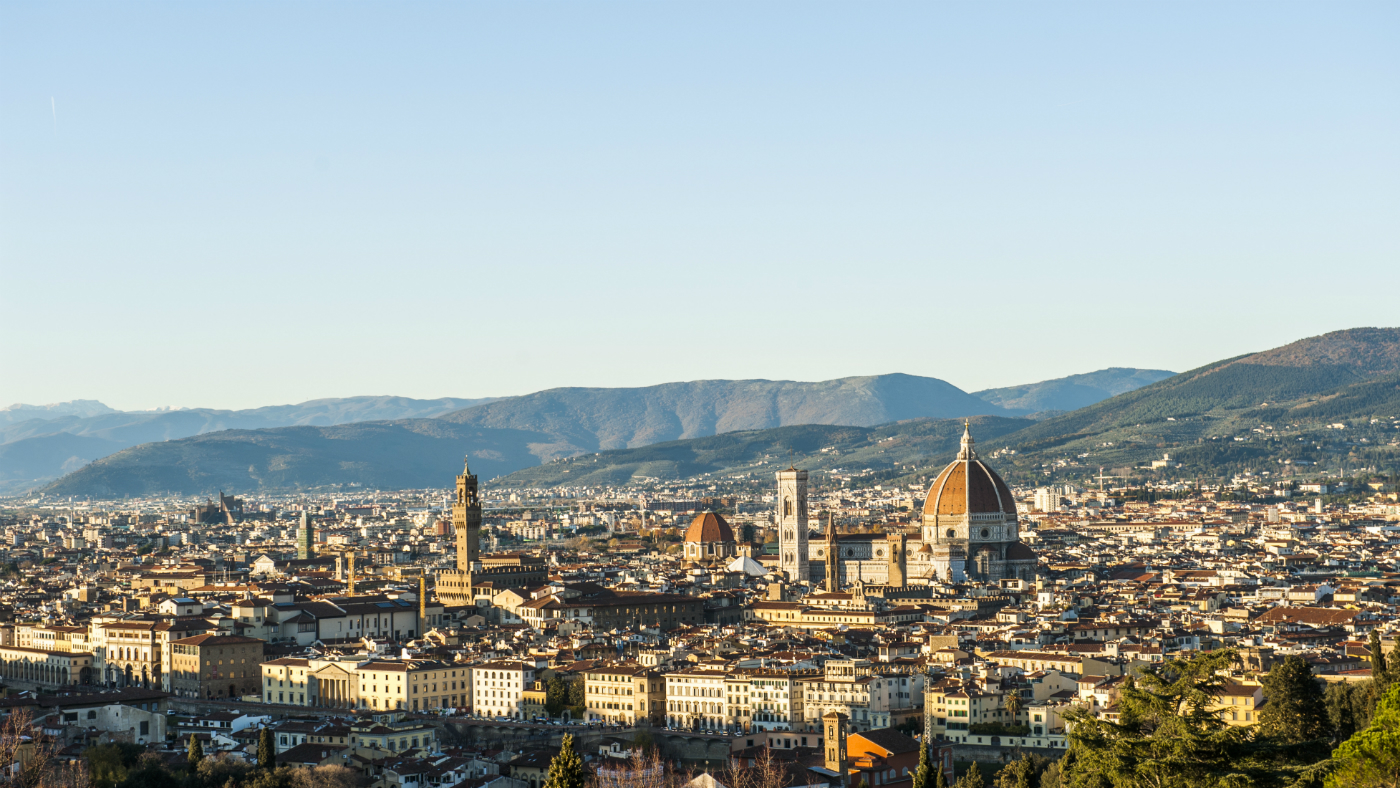
The hotel is set around an outdoor pool, where guests lounge by day, and frolic by night.
Sina Villa Medici is a charming hotel, and the perfect spot from which to mount your discovery of Tuscany… Again.
For more, visit https://www.tuscanyagain.org/
To book with Sina Villa Medici, https://www.sinahotels.com/en/h/sina-villa-medici-florence/
Arion McNicoll is a freelance writer at The Week Digital and was previously the UK website’s editor. He has also held senior editorial roles at CNN, The Times and The Sunday Times. Along with his writing work, he co-hosts “Today in History with The Retrospectors”, Rethink Audio’s flagship daily podcast, and is a regular panellist (and occasional stand-in host) on “The Week Unwrapped”. He is also a judge for The Publisher Podcast Awards.